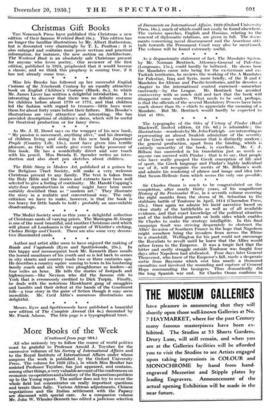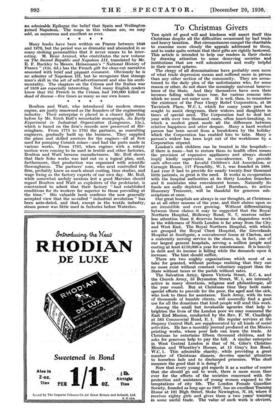Sir Charles Oman is much to be congratulated on the
completion, after nearly thirty years, of his magnificent History of the Peninsular War, in a seventh volume covering the eight months from the storm of St. Sebastian to the stubborn battle of Toulouse in April, 1814 (Clarendon Press, 35s.). Once again we admire his lucid narrative based on close study of the battlefields as well as of all available evidence, and that exact knowledge of the political situation and of the individual generals on both sides which enables Sir Charles to make the strategy intelligible. In this final campaign Soult was striving desperately to obstruct the Allies' invasion of Southern France in the hope that Napoleon might somehow bring the invaders from across the Rhine to a standstill. Wellington for his part could not encourage the Royalists to revolt until he knew that the Allies would refuse terms to the Emperor. It was a tragic fact that the bitter and costly, struggle outside Toulouse was fought four days after Napoleon had abdicated. Four days later General Thouvenot, who knew of the Emperor's fall, made a desperate sortie from Bayonne which cost him nearly a thousand casualties and involved the wounding and capture of General Hope commanding the besiegers. Thus dramatically did the long Spanish war end. Sir Charles Oman confirms in
On-adrnirable.Epilogue the belief that Spain and Wellington, ;uined Narioleort.•: The maps in this volunie are, we may add, as numerous and excellent as ever.







































 Previous page
Previous page